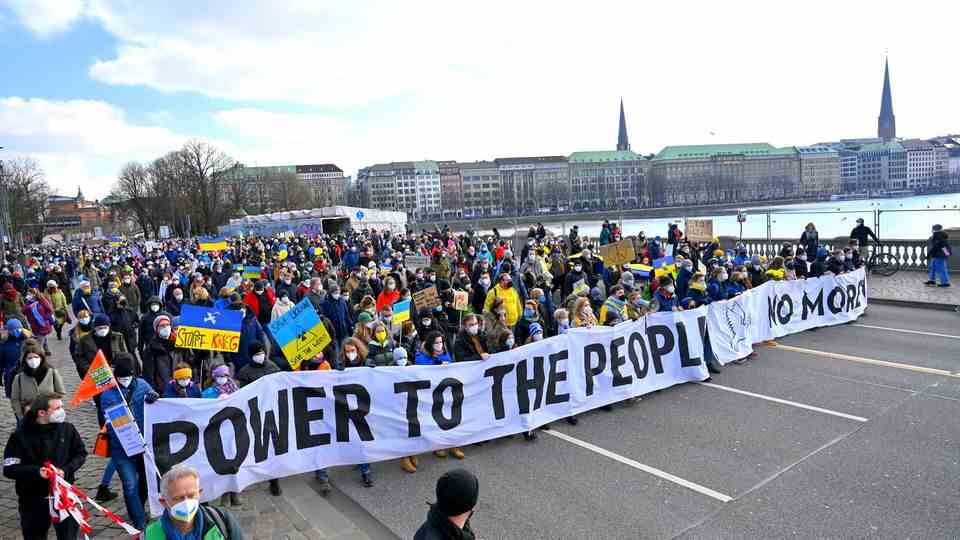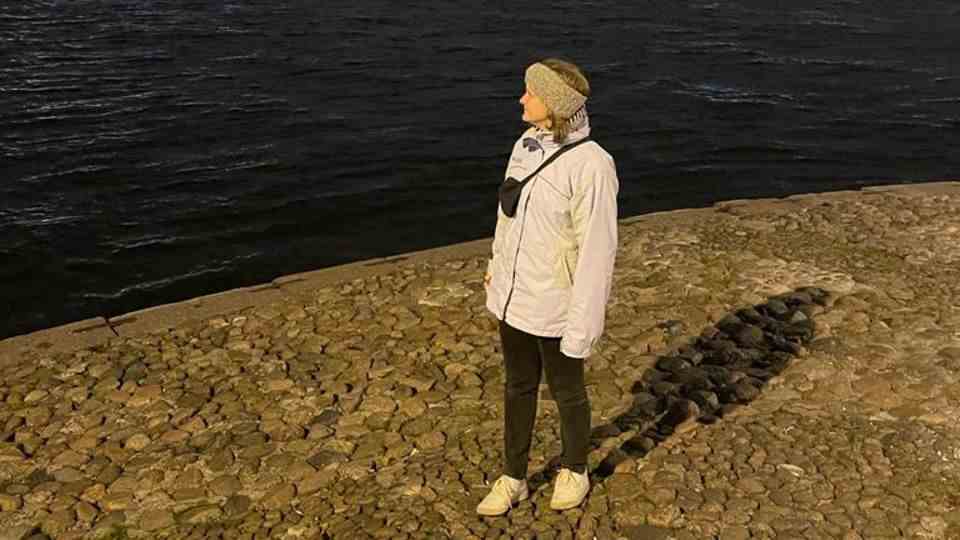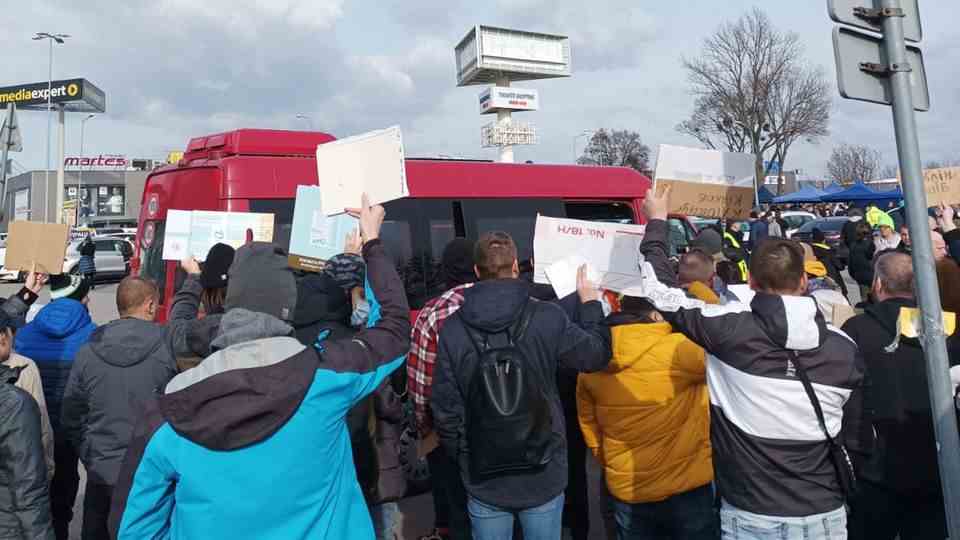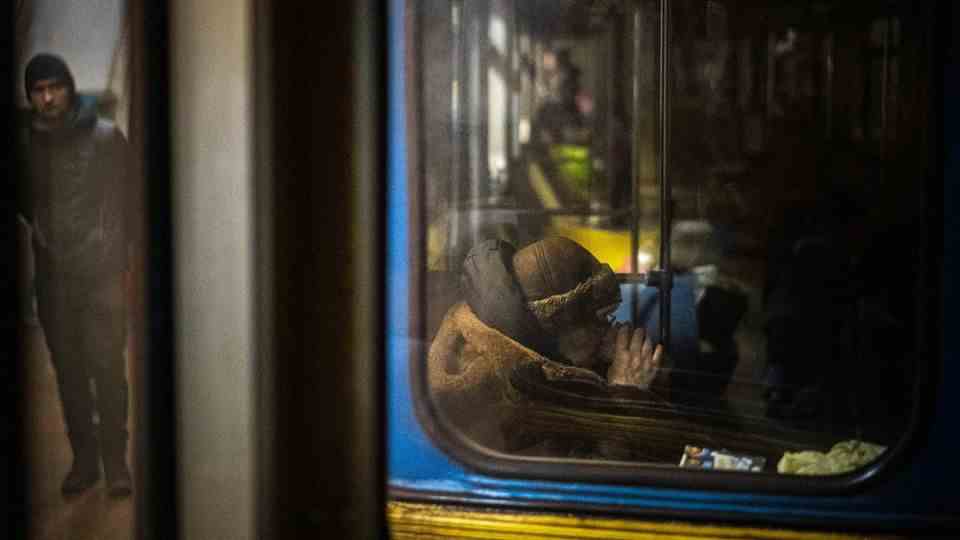Friederike Grube is studying Slavic Linguistics for her master’s degree. When the Ukraine war broke out, she was in the middle of a year abroad in St. Petersburg. Afraid of being stuck there, she fled back to Germany.
Friederike Grube has been learning Russian for seven years. The master’s student from North Rhine-Westphalia is fascinated by the language and the culture. When war broke out, the 25-year-old was in Russia for the fourth time. In conversation with the star she tells of the feeling of powerlessness, the complicated emigration and the dangerous resistance of her Russian friends.
When and how did you find out about the night raid on Ukraine?
I ended up living in a shared apartment with Russian girls. I knew from them that the best way to get the information is from Telegram, i.e. not through the state media, but through alternative information channels. The next morning I had Push-n about the war straight from the app on my phone.
What was your first reaction to the attack?
I was shocked and couldn’t classify what was happening because beforehand I didn’t have the feeling that it could escalate like this. You felt numb. We foreign students didn’t know whether we should leave the country or what possible sanctions would mean for our stay. It was all pretty uncertain.
How were the reactions in your environment, especially from your Russian fellow students?
I got the impression from most of the Russian population that they are against the war and do not support Putin’s actions in any way. Some have told me that they are ashamed to be from Russia and sad that the world is given a poor image of the people. Many, including my roommates, wanted to take an active part and went to the first protests on Thursday.
Did you also take part in a protest?
I wanted to, but my roommate advised me against it. She said it was far too dangerous for me as a foreigner because I might not understand everything and I didn’t know who to turn to if there was a problem. The danger became even clearer to me when she told me that she sews up her jacket pockets in preparation.

A police officer leads a demonstrator in St. Petersburg.
© Sergey Mihailicenko / Picture Alliance
During the Navalny protests last year, it happened that the police smuggled drugs into the hands of the demonstrators. She also told me that the university would expel students if they were arrested during protests. I was in touch with her again yesterday and she told me that if I don’t hear from her tomorrow she might be in jail.
How did you perceive the atmosphere in the city of St. Petersburg?
I can only tie it to the protests I’ve seen. Since the beginning of the war, there has been a lot going on on the streets and people have gone out to position themselves and show: We don’t want this, this is Putin’s war.
How has life in Russia changed for you?
I left the country after a few days. Until then, not that much had changed for me, apart from the fear that I would no longer be able to leave the country because Russian airlines were no longer allowed to land in many countries. The second fear was that Russia will be kicked out of the Swift system and we will no longer be able to get money with our foreign credit cards. That also happened later. The Russian population also feared that they would no longer receive any money. You saw that in the news too: the long queues in front of the banks because everyone wanted to withdraw cash.
How did you feel in the last few days before your departure?
Very helpless because no one could assess whether and how quickly the situation would become even more dramatic and how safe we could still feel. I never felt threatened on site, it was more the fear of not getting out that bothered me. And also sadness that I had to break off the year abroad. It all happened in such a short time that I couldn’t say goodbye and couldn’t process the events at all.
What was the decisive point that made you leave the country?
On Friday, one day after the outbreak of war, an email came from the German university telling us to leave the country. I was already thinking about that. In addition, family and friends from Germany wrote to me that they were worried and wanted me to come back. On Saturday, two days after the start of the war, I booked a flight for Monday.

Friederike Grube spent five months in St. Petersburg before the war broke out and she returned home.
© Private
How did your departure go?
I had booked the flight with Lufthansa because I had assumed that Russian airlines were no longer allowed to fly. But Lufthansa has also canceled all flights from Russia. I didn’t really know what to do. Finally, on Monday night, I traveled by bus to Tallinn in Estonia and flew to Frankfurt from there. Because I was so nervous, I couldn’t sleep all night. I was concerned that the flight would also be canceled or that I would miss it. When I crossed the border into Estonia I felt very reassured.
How are you doing here in Germany now that you can follow what’s going on from afar?
I am still deeply shocked. War is terrible and I want it to stop. Here in Germany, I think it’s nice to see how much solidarity is being shown with Ukraine. That gives me hope. On the other hand, I fear that a certain Russophobia could develop in Germany. It saddens me because I saw that the people of Russia are not for this war. The hostility towards the Russian people makes me very sad as a person interested in the language and culture.

Whether Berlin, Munich or Hamburg: In Germany, thousands of citizens took to the streets to show solidarity with Ukraine.
© Picture Alliance
Would you like to travel to Russia again in the future?
I definitely want to go back. I don’t think it can be a solution that you create a complete break with another country.



